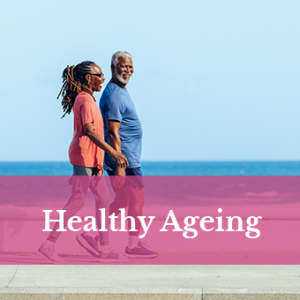
The development of an exercise guideline for elderly with depressive symptoms in community
Presenter(s):
Chun-Chia Hung; Huang Fang Lee, CHI-MEI Medical Center; Department of Nursing, College of Medicine, National Chen Kung University, China
Abstract
Background:
Depression is a common and severe mental disorder globally, with the increase in the elderly population. Nearly one-third of the elderly experience depressive symptoms or are diagnosed with depression, and approximately 10-15% of community-dwelling elderly exhibit related symptoms. If not treated appropriately, it can lead to dementia, cognitive impairments, an increased risk of suicide, and affect the quality of life.
Exercise can decrease depression levels more effectively compared to other non-pharmacologic interventions. Existing clinical guidelines for the elderly with depression do not provide recommendations for various exercise measures based on the level of evidence, nor do they offer implementation steps and precautions.
Purpose:
Developing a clinical guideline for exercise interventions in community-dwelling elderly with depressive symptoms through evidence-based methods.
Method:
After establishing the guideline development team and determining the development theme, the team sets the research question based on the PICO framework and begins the literature search. Next, utilizing the inclusion and exclusion criteria, the literature is screened using the PRISMA flow process. Based on the literature, internal experts prepare and review a draft guideline. Following revisions based on expert recommendations, external experts use the AGREE II instrument to assess the quality of the guidelines. After the external experts’ review, the guideline development team evaluates and drafts a preliminary version of the guidelines. Anonymous questionnaires are distributed to community nurses, geriatric medicine experts, and physical therapists in communities, long-term care facilities, and daycare centers. A total of 30 cases are collected, and the applicability and difficulty of the guidelines are assessed. Following this assessment, the content is discussed and revised based on the recommendations, leading to the finalization of the guidelines.
Results:
Through a comprehensive literature review, evaluation of evidence levels, and expert reviews from both internal and external specialists, this study summarizes exercise strategies for community-dwelling elderly with depression. These strategies include aerobic exercise, Tai Chi, and home-based exercise programs. The recommended interventions detail implementation methods, exercise protocols, and necessary precautions to ensure both safety and effectiveness.
Conclusion:
This guideline is intended to serve as a reference for community care providers and as a basis for planning activities for the elderly with depression in the community. It is also hoped that the guideline can be promoted in resource-limited areas, enabling elderly with depression in those regions to receive a similar level of care.
Keywords:
Elderly, depression, exercise, clinical practice guideline
Bio(s):
Presenter 1: Chunchia Hung is a master’s student in the Department of Nursing at National Cheng Kung University and a registered nurse at Chi Mei Medical Center, South Taiwan. Her clinical experience in intensive care has inspired her to focus on promoting healthy aging through evidence-based strategies. Currently, her research explores exercise interventions to support mental health and well-being among community-dwelling older adults. She is passionate about integrating clinical practice and research to advance health promotion in aging populations.
Presenter 2: Professor Huang Fang Lee is an Associate Professor in the Department of Nursing at National Cheng Kung University. Her areas of expertise include nursing administration, adult nursing, evidence-based nursing, and quantitative research.
